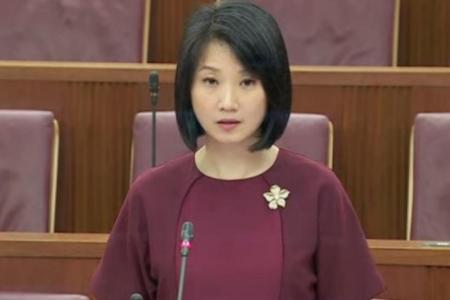New school to be set up for students with multiple disabilities
A new school for children with multiple disabilities will be set up in the west of Singapore amid ongoing efforts over the past few years to enhance accessibility to special education schools, Minister of State for Education Sun Xueling told Parliament on Monday (March 7).
Students aged seven to 18 with at least two impairments across a range of sensory, cognitive and physical issues will be able to enrol at the school. It will be established by the Cerebral Palsy Alliance Singapore (CPAS) and the Ministry of Education (MOE).
"These students have complex needs which can affect their learning and mobility, and may also face medical challenges," said Ms Sun, adding that families can look forward to a close collaboration between special education (Sped) educators, allied professionals and parents.
The school will help those with moderate to high support needs develop vocational skills and the ability to live independently, MOE said in a separate statement.
This will be the second government-funded Sped school dedicated to serving students with multiple disabilities, with CPAS School in Pasir Ris being the first.
Sped schools are for children and young people with disabilities who need customised curriculum.
There are three non-government funded schools for students with multiple disabilities in Singapore: AWWA School @ Napiri in Hougang, Rainbow Centre Margaret Drive school in Queenstown and Rainbow Centre Yishun Park school.
Educators and parents living in the western part of Singapore said the new school would help cut travelling time.
Madam Carol Ng, who lives in Choa Chu Kang, told The Straits Times that she takes at least 30 minutes to drive her nine-year-old daughter to CPAS School. Her child has to endure a two-hour journey to get home every day by school bus.
Ms Nurul Irdayu Abdul Shukor, who has taught at CPAS School for six years, noted that many parents living in the west have to wake up as early as 4.30am to get their children ready for school, which starts at 8am.
"A shorter travelling time means that parents no longer need to rush in the morning to get to school and can then focus on following up their child's basic daily living skills like brushing teeth and showering," she added.
More spacious simulated environments for children to practise skills such as crossing the road and an academic curriculum that extends beyond the Primary School Leaving Examination (PSLE) standards for children with multiple disabilities are among several wishes of parents and teachers for the new school.
Madam Sally Kwek, whose 14-year-old daughter has Mobius syndrome - a rare neurological disorder that affects facial and throat muscles - and is in Primary 5 at CPAS School, hopes that the authorities will look into letting non-autistic children in Sped schools study past the PSLE - something now not offered at special education schools for children without autism.
"Many children like my child have specific special needs but they are also cognitively able to meaningfully study mainstream curriculum if they are in smaller classesand given an inclusive environment and therapy support," said the retail business owner.
Giving an update on St Andrew's Mission School, which opened in January in Bukit Batok, Ms Sun said the permanent site of the Sped school for children with autism will be built next to Nan Hua High School in Clementi.
It will provide 500 primary as well 350 post-primary level school places, she added.
Some like Madam Chen Ying Qing hopes to enroll her six-year-old twin sons, who have autism and are currently attending a MOE Kindergarten in St Andrew's.
Said the primary school teacher: "While they have a choice of opting for the mainstream school that their kindergarten is affiliated with, they will definitely benefit from a more structured environment with smaller teacher-student ratios, which can cater to their pace."
Meanwhile, Ms Sun said MOE is on track with rolling out its TRANsition Support for InTegration (Transit) programme to support Primary 1 pupils with social and behavioural needs in all schools by 2026. By the end of this year, a total of 66 schools will implement the programme that helps these pupils transition into primary school.
"Since the introduction of Transit, about 180 pupils (with special needs) have made encouraging progress in developing their self-management skills," Ms Sun added.
Get The New Paper on your phone with the free TNP app. Download from the Apple App Store or Google Play Store now


